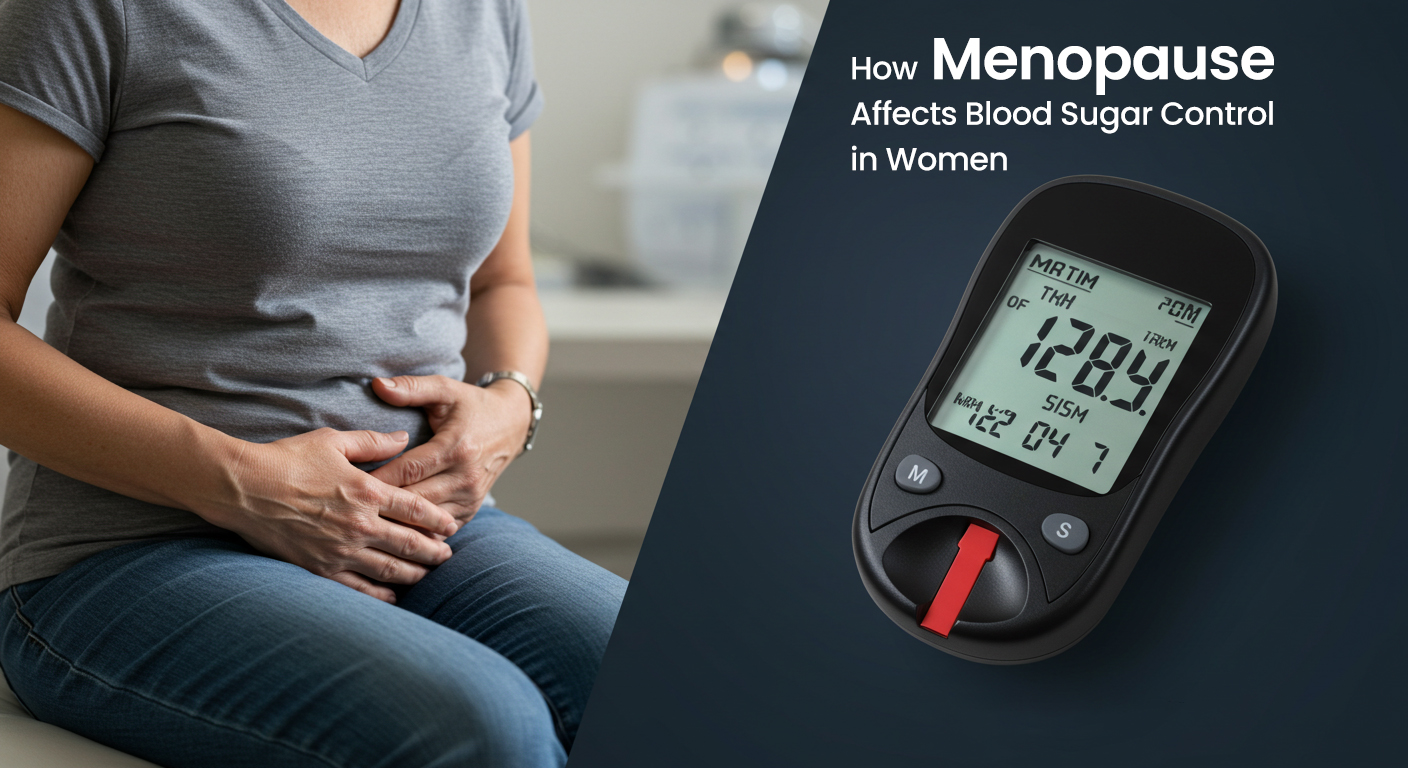
Menopause marks a significant transition in a woman’s life, but it also comes with various hormonal changes that can impact blood sugar levels. For women with diabetes—or those at risk—understanding this connection is essential for better management and overall well-being.
During menopause, levels of the hormones estrogen and progesterone decline. These hormones influence how cells respond to insulin. As they fluctuate and eventually drop, the body can become more resistant to insulin, leading to higher blood sugar levels.
Fortunately, lifestyle and medical strategies can help manage the hormonal and glucose challenges of menopause effectively:
Focus on foods that stabilize blood sugar—whole grains, fiber-rich vegetables, and lean proteins. Avoid processed carbs and sugary snacks that cause glucose spikes.
Include a mix of aerobic activity (like brisk walking or swimming) and strength training to improve insulin sensitivity and control weight.
As hormonal changes fluctuate, so will glucose levels. Frequent monitoring helps track patterns and make timely adjustments to diet or medication.
Practice mindfulness, deep breathing, or yoga. Reducing stress can help lower cortisol levels and maintain steady blood sugar.
Prioritize sleep hygiene—keep your bedroom cool, avoid caffeine late in the day, and maintain a consistent bedtime routine.
Discuss symptoms with your diabetologist or endocrinologist. They may adjust medications or suggest hormone replacement therapy (HRT) if needed.
Menopause and diabetes management can be challenging, but understanding how hormones affect blood sugar empowers women to take control of their health. With the right diet, lifestyle, and medical support, it’s entirely possible to maintain stable glucose levels and thrive during this stage of life.
At Sre Iswarrya Diabetic Hospital, we offer specialized care for women experiencing menopause and diabetes. Our team provides personalized guidance on nutrition, exercise, and hormonal balance to help you live healthier and more confidently.